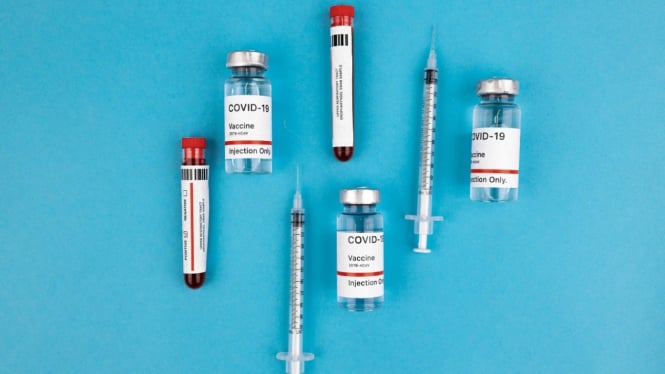Pfizer Vaccine Allowed for Six Months to Four Years Children
- Pexels/Maksim Goncharenok
VIVA – The COVID-19 vaccine has been authorized for six months to four years children based on reports from health regulators in the UK. The type of vaccine that is declared to fulfill strict safety, quality, and effectiveness standards is Pfizer.
In February 2022, it was announced that children aged five will be offered the shot from April. The dose for infants and toddlers will be smaller than that given to those aged five to 11.
The dose is given as three injections in the upper arm, with the first two doses given three weeks apart. This is then followed by a third dose given at least eight weeks after the second dose.
Ilustrasi vaksin
- VIVA/ David Rorimpandey
The UK's Medicines and Healthcare Regulatory Agency (MHRA) stated that no safety concerns have been identified recently with the vaccine. The JCVI (Joint Committee on Vaccination and Immunization) must decide whether or not the vaccine should be administered. The MHRA made its decision after reviewing data from 4,526 participants.
"Following MHRA approval of the Pfizer-BioNTech COVID-19 vaccine for young children, aged six months to four years, JCVI will now consider and make further recommendations to the Health Secretary in due course," said a spokesperson for the UK Health Safety Agency, quoted from The Sun page, Wednesday, December 7, 2022.
The announcement comes after data from the Office for National Statistics (ONS) revealed that COVID-19 cases have once again reached over one million in the UK. Health chiefs also warned that new variants are circulating.
Omicron's BQ1 mutation is dominant and around 50.4 percent of infections, compared to 39 percent last week. The Medical Director at England’s National Health Servics (NHS), Professor Stephen Powis warned that this season could be one of the most challenging for healthy bodies.
"There is a new variant circulating, BQ1 which is becoming the dominant variant and looks set to drive further increases. In some of the countries in Europe that have it, you can already see the growth in hospitalizations. No doubt, that pressure will increase," Professor Stephen Powis remarked.



























